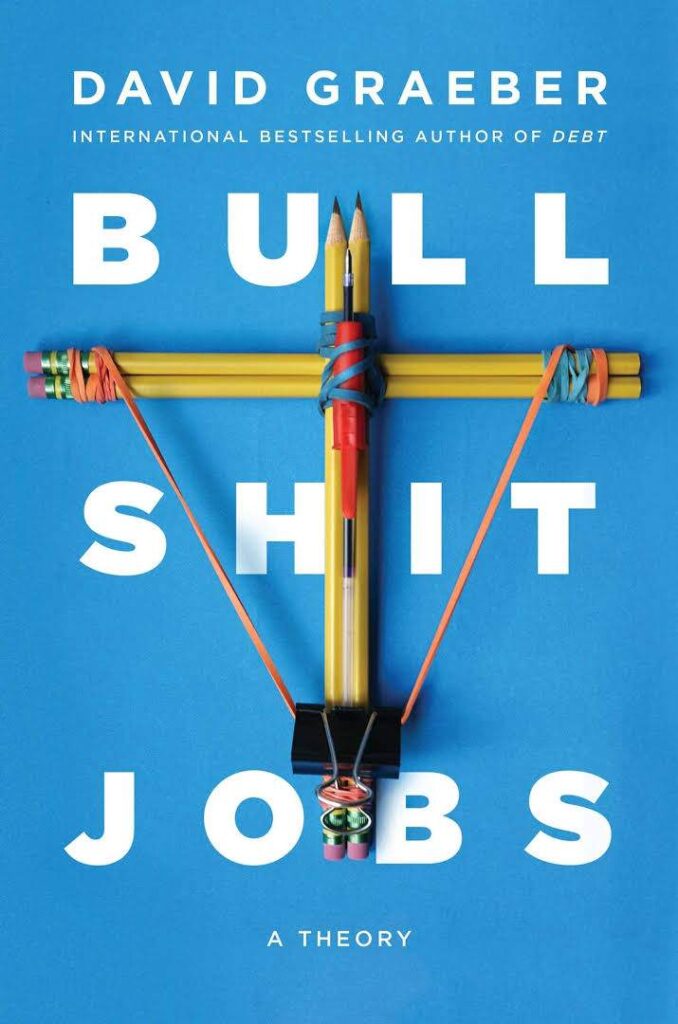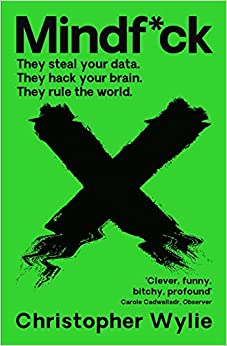After a number of perverse political events that 2021 has already offered and the at the time of writing we had barely taking 4 months in of the new year. I was reminded of this book by David Graeber, one of my favourite authors, also in my opinion one of the most under rated under appreciated political/academic and anthropological philosophers of our time. I for one was deeply saddened by his sudden passing in 2020.
I have previously reviewed and discussed his work Debt : The first 5000 years and my personal favourite Bullshit Jobs : A Theory
The events of what is known as the Insurrection or the storming at Capitol Hill , the Belarus protests and the apparent military coup in Myanmar that many political leaders and news agencies seem don't want to refer to it as a military coup.
In all these instances, the responses of the media and political classes were from the casual observer perspective somewhat perplexing. I was struck by the ambiguity and yet also by the strong correlations of the events, and also by what only can be explained as the absurdity of human nature and it often contradictory fixation on what is democracy .
I recalled how David Graeber, had actually detailed many similar events in The Democracy Project, I know a book on political movements isn't the first thing that would come to mind on a software developers blog, but ever since I read Mindf*ck: Inside Cambridge Analytica’s Plot to Break the World I realised that as software developers and people who work in technology in general, we can have a very real influence on politics in many different ways and we have a duty to understand more about the potential impacts.
Mindf*ck
Inside Cambridge Analytica's Plot to Break the World
whistleblower Christopher Wylie, the definitive story of the Brexit coup, the making of Bannon's America, and an ongoing crime against democracy
Why I read this book?
As previously mentioned, I have already read Graeber's previous work, and already a fan of his work. I was also interested and a supporter of the Occupy Movement from an ideological stand point. I was interested in discovering more about what drove the Movement.
There have been many stories regarding this movement, many of which have often attempted to portray it in a bad light from the various media mogul news agencies. I wanted to learn more, from the people who were on the other side of the fence, and who better than David Graeber who was pretty much at the centre of it.
What I learned from this book
I'll be the first to admit that the first quarter of this book, is pretty hard to get into. I was almost put off from continuing, and if I hadn't read his previous work, I might have done so. However, once you get over that part of the book, you'll understand why Graeber went through so much detail, in order to introduce all elements that comprised the Global Movement.
This work, exemplifies that movements, are made up of many different types of groups, who don't necessarily agree with all points and aspects on any given subject, and that all they really need to agree on is some key concepts. Sometimes groups can be completely opposed on a wide variety of points, yet still find a common cause. The important thing upi'll realise is that not everyone involved in the Occupy Wall street movement, was a member of Vegan Lesbian Cycling Collective.
The book provides a fascinating account of the early days of the Occupy Wall Street movement, along with Graeber's insights as to why the movement happened when it did, why it happened on the scale that it did, why the major public occupations ended when they did, and what the future may hold.
Additionally, you'll get a history and radical analysis of the roots of democracy that serves to shed light on some of the vexing questions about American politics, such as why poor Southern whites vote "against their self-interest" by supporting Republicans.
Empires come to be based more and more on sheer extortion
The Democracy Project - David Graeber
The whole point that Graeber enforces through this book is that protests are not meant to extract concessions from the existing system, but to give people an idea of what the world would be like if there was no system and individuals were free to make their own choices.
As an anarchist, Graeber believes that democracy – or rather, the thing that we have come to call democracy, with its professional politicians, political parties and preoccupation with the money – has been entirely co-opted by finance capitalism. OWS gave a glimpse of a very different sort of politics, free-wheeling, interactive, sometimes chaotic, always creative, never knowing where it was headed next. The big, lively crowds of disparate people talking to each other about their struggles was the whole point: it showed that real democracy can break out almost anywhere given the chance.
The book is also testament, that the system and states will do whatever they can, whether it is legal or not, to squash true democracy before it can actually take hold.
In retrospect and with the opportunity of re-evaluation this global pandemic has provided, people globally are identifying the emerging picture that workers had formal rights but they had no real power to break free from the mindless pressure of a service economy and a consumerist society. For most people the fear of losing your job was far greater than the hope of finding a truly fulfilling one.
Information technology has made things worse by ramping up the bureaucracy and relentless demands of working life. But it also contains the seeds of radical alternatives: the internet is a space where it is possible to experiment with new kinds of labour and new ways of sharing information, time and experiences. On a crowded planet of limited natural resources, there have got to be better ways of working for a living than we currently manage.
China floods the United States with vast quantities of underpriced consumer goods, on a tab they're aware the United States will never repay, while the United States, for its part, agrees to turn a blind eye to China systematically ignoring intellectual property law
The Democracy Project - David Graeber
Our mental health has a species, has been severely impacted by this global pandemic, unfortunately we have yet to see the real impact this is going to have. We are starting to see the first signs of it, with growing unrest and the general distrust of those in power.
In the UK, we are also clearly getting a better picture of the high levels of corruption within government and just how broken the state really is. It is abundantly clear that the UK is headed to some sort of political disaster, and he don't have the political talent to avert it, only to worsen it. Yet, we were continually told over the last 5 years that we were standing up and fighting for democracy. This democracy has turned out to nothing more than gratuitous flag waving and incoherent rumblings from a woefully inept political class.
Why I recommend this book
It is now cliche to day that this book would Wake you up. It is now apparent that ruling classes and their subservient media stooges have clearly demonised the Woke. However, I still think this book will still serve as mechanism for people to learn and respect different points of view, and come to the realisation that what we have come to perceive as democracy really isn't.
It is worth taking the time, to read and learn from other perspectives, the 2008 economic crash lead directly to Occupy Movement where people from all areas of political spectrum joined together under a common cause. It is abundantly clear that this will be repeated and in many respects has already started as a result of the Global Pandemic. The levels of protest and civil disobedience is going to continue to increase. There will be increased calls for true Democracy, its worth taking the time to learn its true meaning.
- What is this Directory.Packages.props file all about? - January 25, 2024
- How to add Tailwind CSS to Blazor website - November 20, 2023
- How to deploy a Blazor site to Netlify - November 17, 2023

